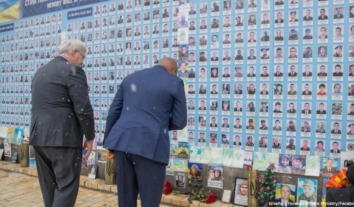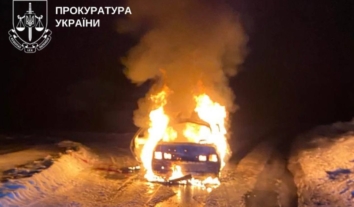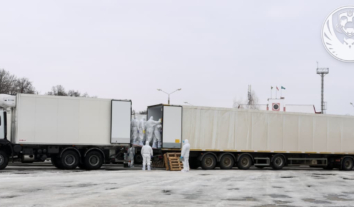Ukrainian border guards reluctant permit entry for Russians of military age – human rights activist
The human rights activist has filed five requests with the border service, but not been yet given a copy of the telegram, mandating stricter check on the Russian men aged 17 – 55 years when crossing the border.
As co-director of the Without Borders project of the NGO “Center for Social Action” Maksym Butkevych, dealing with protection of the rights of refugees, told the Ukrayinska Pravda (Ukrainian Truth) media outlet, he and media lawyer of the Regional Press Development Institute Oleksandr Burmahin are getting ready to appeal against the response of the State Border Service of Ukraine. The aim is to punish the officials who lie, as the response to the first request is contrary to their following answers. In addition, the human rights activist wants to complain about the telegram itself and stop discrimination of the Russians on the border.
The human rights activist said that complaints from Russian citizens about entry ban had become more frequent since spring of 2014. The reason for that was the alleged instruction on strict regime and check of men, citizens of the Russian Federation, issued by the Administration of the State Border Service of Ukraine.
Butkevych filed the request to the State Border Service, asking what orders, instructions, and regulatory documents currently regulate the entry of Russian citizens to Ukraine, and what orders have entered into force since March 1, 2014. The Border Service answered that the entry permit was given according to the effective legislation without any changes.
As of that time, the human rights activist already had a copy of the internal telegram of the State Border Service’s Administration of March 11, 2014, where it was said to minimize crossing across the state border for the Russian citizens, men aged 17 – 55 years, unless a man is travelling with his family, arrives in Ukraine for good reasons, lives in Ukraine, or is transport support worker.
“I understand the logic of the State Border Service, but we were amazed by illegible discriminatory nature of the document. You should only be a person of a certain age and citizenship not to be able to enter Ukraine, contrary to all legal norms,” Maksym Butkevych stresses.
The Border Service sent the same answer to the second request. The third response said that the given list of documents is exhaustive, and no other documents have been issued. Probably, the human rights activist says, the service did not consider this telegram to be the regulatory document.
Therefore, in his fourth request the activist asked for the full text of the telegram on restrictions on border crossing. In response, it was pointed out that such a telegram had not been submitted to the Administration.
In its fifth response, the State Border Service referred to the Law of Ukraine “On Access to Public Information” and noted that the copy of the telegram could not be provided, as “the harm from disclosure of such information would outweigh the public interest in obtaining it.”
As a reminder, the State Border Service reported that a Russian citizen had come to one of the checkpoints in Chernihiv region and asked for political asylum for himself and his family in August this year. The Ukrainian border guards allowed the entry to the man, who had suffered persecution in Russia for his criticism of the authorities, in particular with regard to the military conflict in Donbas.















